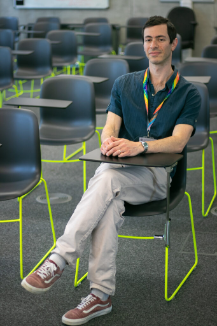Alternative assessment in linguistics: Combining teaching and research

Thursday 28 November 2024, 3.00PM
Speaker(s): Itamar Kastner (University of Edinburgh)
In recent years, a growing body of work in the Scholarship of Teaching and Learning has turned its attention to “alternative assessment”: varieties of coursework that reject many assumptions inherent in the traditional exam or essay. Within many fields, including linguistics (Zuraw et al 2019, O’Leary and Stockwell 2023), scholars have been exploring the ways in which research on pedagogy can help us create more meaningful classroom interactions (Freire 1968, hooks 1994), more authentic forms of assessment (Sambell et al 2013, Clark and Talbert 2023), more equitable classrooms (Williams 2021) and less busywork (Sackstein 2015, Stommel 2023, Eyler 2024).
I’ll survey the basic research on the topic and then present a view of teaching linguistics as an object of research in its own right, using case studies from two modules I recently taught. The first, an advanced unit on morphology, was completely self-assessed (see e.g. Blum 2020). I’ll describe the pedagogical underpinnings of this approach, how the unit ran, and how we can evaluate its success. The second case study implemented Skills-Based Grading (also known as “mastery grading” or “contract grading”; e.g. Pérez and Verdín 2023) in an introductory syntax sequence which has just concluded. I’ll explain how this assessment system was set up, what practical questions it raised, and what deeper pedagogical considerations it brought up. I’ll conclude with some discussion of alternative assessment’s place in an increasingly marketized and bureaucratized higher education sector, making the case that while it cannot solve all our problems, it may hold more solutions than thought previously.
Location: D/L/028
